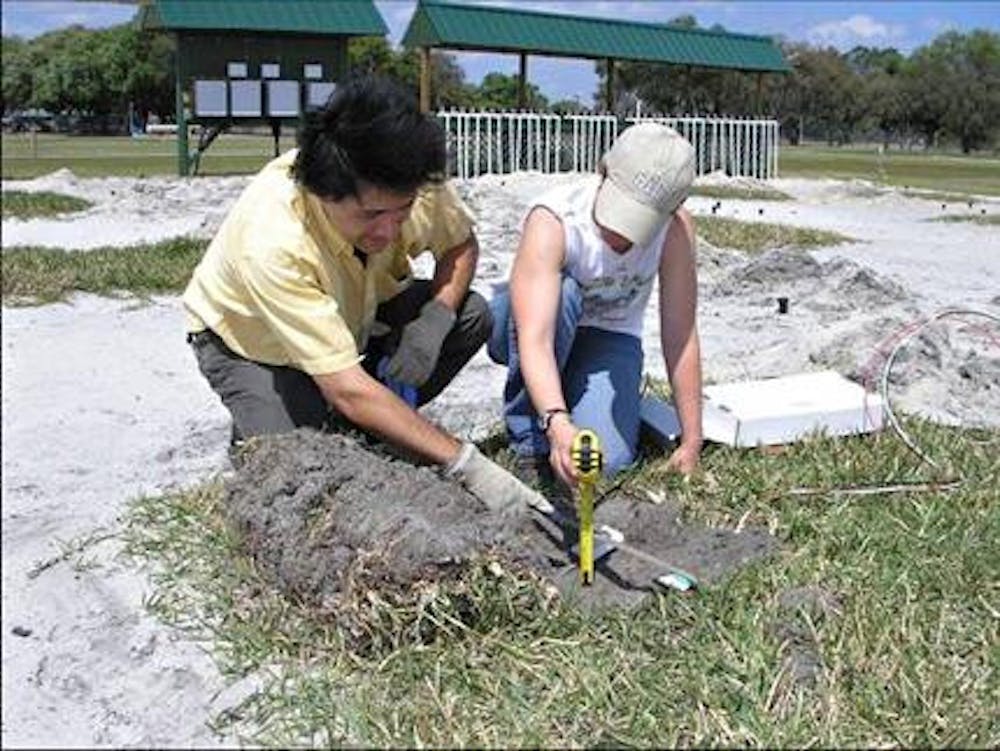UF researchers have found that going green to protect the water supply doesn't mean sacrificing a green lawn.
Two recent studies from UF's Institute of Food and Agricultural Sciences reveal that simple changes to lawn-watering practices can drastically reduce water use.
Researchers found that homeowners could save a significant amount of water and money by changing automated sprinkler schedules and using soil moisture-sensor technology.
The sensor can monitor how much moisture is in the grass' roots and shut off the lawn's irrigation system accordingly.
Melissa Baum Haley, research coordinator and a graduate student in the department of agricultural and biological engineering, worked with seven other researchers on the studies, which were led by Michael Dukes, associate professor of agricultural and biological engineering.
For the first study, the research team worked with 27 Florida homeowners to determine the best settings for automated in-ground sprinkler systems.
The team concluded that homeowners could cut monthly water usage by 30 percent by changing their sprinkler settings seasonally.
The average amount of water saved for the homes in the study was 13,000 gallons per month.
These changes would be easy to implement, Haley said.
The study also found that homeowners who used short-range sprinklers on ornamental plants along with the adjusted watering schedule cut water usage in half.
In its second study, the team asked if soil-moisture sensors could also be used to control the amount of water a lawn receives.
A soil-moisture sensor is a small device placed in the dirt beneath the root bed of the grass.
By testing a variety of moisture sensors on the market, the team found that it conserved an average of 69 to 92 percent of water.
In both studies, the lawns undergoing the experiments remained healthy and green, indicating that less water did not decrease plant health.
These studies also indicate that most people are significantly overwatering their lawns.
Haley compared the grass root zone, where grass absorbs water, to a gas tank.
Although people may think more water will equate to healthier grass, like a gas tank, the root zone can only hold so much.
"By irrigating for one or two or three hours, you're not going to have more water stored in that root zone," she said.
Haley said 45 minutes is more than enough time to water any one area.
As Florida continues to grow at breakneck speed, the need for water conservation will increase, she said.
As the state's population increases, construction of family housing increases.
These houses will most likely come with automated sprinkler systems.
If every house with these automated systems adopted the seasonal scheduling changes, enormous amounts of water would be saved, Haley said.
She encouraged homeowners to look into making these changes and being more responsible about water conservation.






